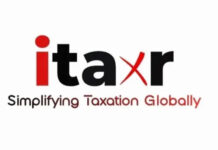Timely and disciplined tax planning can help tremendously! – Alok Kumar Agarwal
Tax planning is a crucial aspect of personal finance that involves the strategic management of one’s financial affairs to minimize tax liabilities and maximize savings. By utilizing legal provisions and tax-efficient strategies, individuals can optimize their financial situation while remaining compliant with applicable tax laws. It involves understanding the tax laws, regulations, and exemptions applicable to an individual’s specific circumstances. Tax planning is not about evading taxes or engaging in illegal activities; instead, it focuses on utilizing legitimate methods and provisions to optimize tax outcomes.
Tax planning involves a series of strategic steps aimed at minimizing an individual’s tax liability and maximizing savings. The process begins with a thorough assessment of the individual’s financial situation, taking into account factors such as income, expenses, investments, and assets. By evaluating these elements, individuals can identify potential areas for tax optimization.
“To effectively engage in tax planning, it is crucial to stay informed about tax laws and regulations. This involves keeping track of changes in tax legislation and being aware of the various deductions, credits, exemptions, and incentives available.”States Alok Kumar Agarwal Alankit. Understanding the applicable tax laws ensures that individuals can leverage the provisions to their advantage and make informed decisions.
Timing plays a significant role in tax planning. Properly managing the timing of income and expenses can have a substantial impact on tax liabilities. By deferring income or accelerating deductible expenses into the appropriate tax year, individuals can reduce their overall tax burden and optimize their tax outcomes.
Strategic investment planning is also essential for effective tax management. Understanding the tax implications of different investment options allows individuals to make informed decisions aligned with their tax planning goals. Proper management of capital gains and losses, for example, can help optimize tax outcomes and minimize tax liabilities.
Estate and gift tax planning involves structuring assets and transfers in a way that minimizes tax liabilities for beneficiaries. Through proper estate planning, individuals can preserve wealth and minimize estate taxes, ensuring that their assets are efficiently transferred while minimizing tax burdens.
Taxpayers can reduce tax liabilities through various options and provisions. Section 80C of the Indian income tax law offers popular tax-saving avenues such as investments in Public Provident Fund, Five Year Bank Deposits, National Savings Certificate, and ELSS schemes. “Creating a financial plan and making tax-saving investments early in the year can be done to optimize tax savings and avoid rushed and incorrect investment decisions” shares Alok Kumar Agarwal of Alankit. Awareness of available exemptions and deductions is crucial for effective tax planning.
Benefits of tax planning
The benefits of tax planning are significant and wide-ranging. One of the primary advantages is minimizing tax liability. By employing effective tax strategies, individuals and businesses can legally reduce the amount of tax they owe, allowing them to retain more of their hard-earned money.
Tax planning also enables individuals to maximize their savings and accumulate wealth more efficiently. By optimizing tax liabilities, individuals can redirect the savings generated towards investments, retirement plans, education funds, or other financial goals. This enhanced savings potential provides individuals with greater financial security and the ability to achieve their long-term objectives.
Alok Kumar Agarwal says, “I believe that Proactive tax planning also helps reduce stress and the risk of audits. By accurately preparing tax returns and maintaining meticulous records, individuals can minimize errors, omissions, or non-compliance with tax regulations.” This diligence reduces the likelihood of facing tax audits or penalties, providing individuals with peace of mind and financial security.
It is crucial to stay informed, seek professional advice when needed, and adapt tax planning strategies to changing tax laws and personal circumstances. Through effective tax planning, individuals can enhance their financial well-being and build a more secure and prosperous future.










